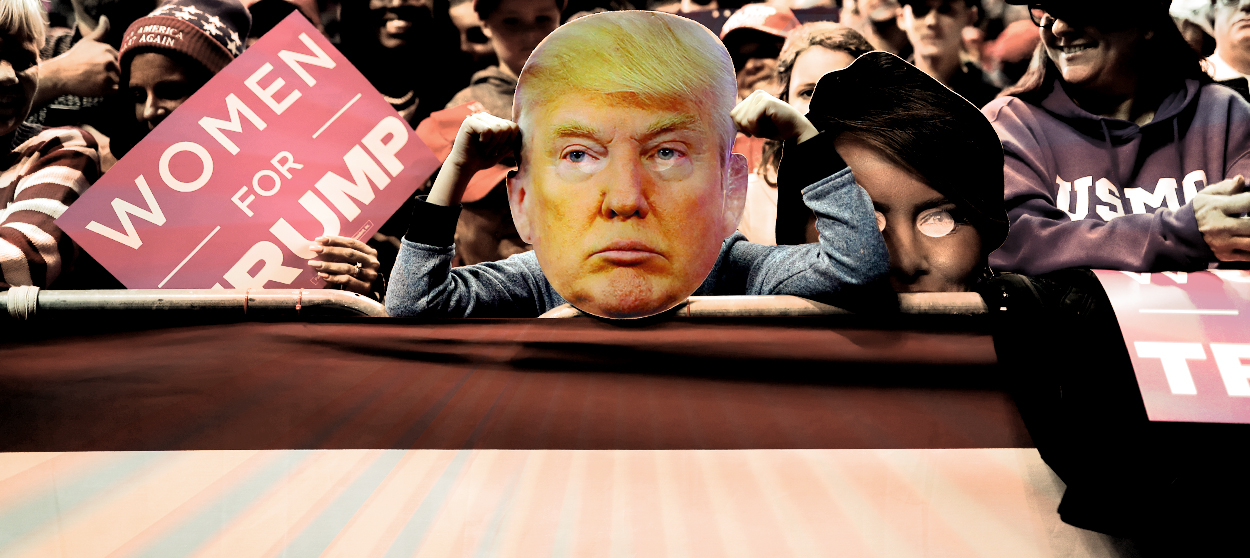The power of the presidential imprimatur
The midterms proved the shocking value of a Trump endorsement


A free daily email with the biggest news stories of the day – and the best features from TheWeek.com
You are now subscribed
Your newsletter sign-up was successful
Tuesday's midterm elections were a victory for President Trump, despite his party's loss in the House of Representatives.
This is true in any number of senses. The first and most obvious is that by and large the candidates he endorsed won. This was true in the House, in the Senate, and in gubernatorial races across the country. In the unpredictable political climate of Florida, his batting average was perfect, with all seven Trump-backed candidates triumphing over Democrats, including Ron DeSantis, whose election as governor is already being considered among the most astonishing upsets of the year. There was no more significant predictor of a GOP candidate's likelihood of success — not even incumbent status — than the presidential imprimatur.
Acknowledging the very real power of Trump's endorsements makes it easier to understand otherwise incomprehensible results, such as in Ohio, where voters chose Republican Attorney General Mike DeWine to succeed the term-limited Gov. John Kasich while also re-electing Sen. Sherrod Brown, an unabashed progressive Democrat. DeWine was endorsed by Trump during the Republican primary, and he ran a campaign very much in the president's image, calling for high-school teachers to be armed in classrooms and advocating the construction of a border wall. Meanwhile the president's tariffs are very popular in the Buckeye State, and throughout his campaign, Brown made a point of voicing his support for Trump's trade agenda. In Indiana and Missouri, moderate Democratic incumbents who attempted to portray themselves as sometime allies of the president lost to challengers endorsed by Trump.
The Week
Escape your echo chamber. Get the facts behind the news, plus analysis from multiple perspectives.

Sign up for The Week's Free Newsletters
From our morning news briefing to a weekly Good News Newsletter, get the best of The Week delivered directly to your inbox.
From our morning news briefing to a weekly Good News Newsletter, get the best of The Week delivered directly to your inbox.
The 2018 midterms were about the man in the White House and the policies associated with him. No president in modern history has ever had a more tenuous connection with his party than Trump's to the GOP. Trump came to power, having never held political office, as a longtime financial supporter of candidates in both parties and armed with a grab-bag of views on trade, health care, foreign policy, and immigration that have only loosely been translated into his presidential agenda, such as it is.
Republicans not only held on to the Senate but managed to increase their narrow majority to 53. They may have lost control of the House, but Trump does not need the House to succeed. With the exception of Trump's tax cuts, which do not seem to have been very relevant to Tuesday's midterm results, none of the successes for which he has taken credit while in office depended upon Congress. The nomination of future Supreme Court justices and other federal appointees and the ratification of treaties such as his revised NAFTA agreement will fall to the Senate. Republicans' loss in the House may not be his gain, but it is hardly a defeat for him, especially given Nancy Pelosi's (D-Calif.) seeming lack of interest in pursuing impeachment upon receiving the speaker's gavel.
In the meantime, Democrats will pat themselves on the back for having retaken the lower chamber by winning back a handful of mostly wealthy suburban districts represented not by socially conservative culture warriors but by business-class Republicans. Their replacements are not Rosa DeLauro clones but Clintonite neoliberals who will ensure that the gains to their retirement accounts secured by the White House are kept safe while applying a salve to their consciences. Democrats secured these seats, not by advocating for a transformative economic agenda that would upend the economic consensus of the last two decades — to which Trump and Bernie Sanders (I-Vt.) are each in their way a greater threat than generic center-right members of either party — but by turning Tuesday's elections into an aesthetic referendum on the president's rhetoric. There is every reason to believe that Democrats will see this as a winning blueprint in two years.
Which is exactly what the president wants as he and his advisers look ahead to 2020. America has already put Trump's character to a vote. Why do Democrats think it will turn out differently for them next time?
A free daily email with the biggest news stories of the day – and the best features from TheWeek.com
Matthew Walther is a national correspondent at The Week. His work has also appeared in First Things, The Spectator of London, The Catholic Herald, National Review, and other publications. He is currently writing a biography of the Rev. Montague Summers. He is also a Robert Novak Journalism Fellow.
